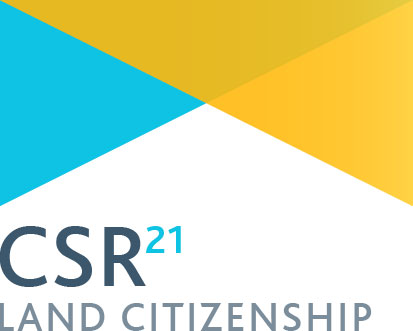
2015 a breakthrough year for community land rights?
An article published yesterday by Reuters popped up in our feeds this morning, asking whether 2015 will a pivotal year for the global recognition of land and resource rights.
The basis for this hope is current momentum in “protecting the world's forests and their communities”, as discussed by a convention of the great and the good of Land Citizenship in London this week for the launch of the Rights and Resources Initiative (RRI)’s Annual Review. The RRI is a coalition of 150+ organisations “working to advance forest tenure, policy and market reforms.”
In 2014 a great deal of ground seems to have been prepared (sorry): RRI cite the examples set by judges and legislators in Canada, El Salvador, Paraguay, Chile, Colombia and elsewhere in enshrining the rights of communities and strengthening land laws. The article argues that studies have also shown that securing local land rights has wider benefits too in terms of slowing climate change, “because local people protect forests - and the carbon they contain - when they have secure rights and government support.”
Africa has been slower in this regard, but nonetheless displays some grounds for optimism: Liberia has a progressive land rights policy that “elevates customary rights to the same level as statutory rights”; Tanzania is strengthening women's land rights; and Uganda plans to issue a million land titles to boost customary land ownership.
The piece runs through a few recent other markers of progress that paint a picture a little rosier than that to which we’re accustomed—including the fact that in 2014 a number of corporations signed the Paris Declaration on Forests, pledging to halve the net deforestation in their supply chains by 2020 and to eliminate it by 2030. As the RRI points, out, though, “these promises will lose credibility if they are not matched by actions to end corporate takeovers of indigenous lands.”
Trust is still a major issue for NGOs and land rights organisations negotiating with corporations and governments (not surprisingly when growing numbers of land rights campaigners are being threatened and killed around the world—depressing examples aren’t hard to find).
Experts at the launch also underlined how the World Bank “had a leading role [in preserving land rights]… in particular as it is due to launch the first global forest carbon market in 2015.”
As RRI coordinator Andy White put it: "The carbon market is the next global commodity from tropical forests, and once again, there is a major risk that indigenous people are not recognised as owners of the forest."
ENDS
https://www.reuters.com/article/2015/02/04/rights-global-forests-idAFL6N0...
www.csr21.org/news/citizenship/violence-endemic-guatemala-mining-protest...
www.csr21.org/news/citizenship/canadian-sustainability-standards-idea-an...





